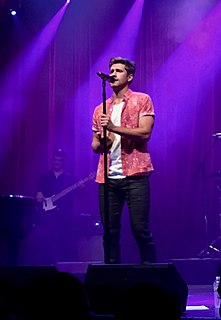A Quote by Max Muller
The Vedic literature opens to us a chapter in what has been called the education of the human race to which we can find no parallel anywhere else.
Quote Topics
Related Quotes
It is arguable whether the human race have been gainers by the march of science beyond the steam engine. Electricity opens a field of infinite conveniences to ever greater numbers, but they may well have to pay dearly for them. But anyhow in my thought I stop short of the internal combustion engine which has made the world so much smaller. Still more must we fear the consequences of entrusting a human race so little different from their predecessors of the so-called barbarous ages such awful agencies as the atomic bomb. Give me the horse.
It is already becoming clear that a chapter which had a Western beginning will have to have an Indian ending if it is not to end in self-destruction of the human race. At this supremely dangerous moment in human history , the only way of salvation is the ancient Hindu way. Here we have the attitude and spirit that can make it possible for the human race to grow together in to a single family.
If Mother Culture were to give an account of human history using these terms, it would go something like this: ' The Leavers were chapter one of human history -- a long and uneventful chapter. Their chapter of human history ended about ten thousand years ago with the birth of agriculture in the Near East. This event marked the beginning of chapter two, the chapter of the Takers. It's true there are still Leavers living in the world, but these are anachronisms, fossils -- people living in the past, people who just don't realize that their chapter of human history is over. '
Among the older records, we find chapter after chapter of which we can read the characters, and make out their meaning: and as we approach the period of man's creation, our book becomes more clear, and nature seems to speak to us in language so like our own, that we easily comprehend it. But just as we begin to enter on the history of physical changes going on before our eyes, and in which we ourselves bear a part, our chronicle seems to fail us-a leaf has been torn out from nature's record, and the succession of events is almost hidden from our eyes.
Education doesn’t make you happy. Nor does freedom. We don’t become happy just because we’re free – if we are. Or because we’ve been educated – if we have. But because education may be the means by which we realize we are happy. It opens our eyes, our ears, tells us where delights are lurking, convinces us that there is only one freedom of any importance whatsoever, that of the mind, and gives us the assurance – the confidence – to walk the path our mind, our educated mind, offers.
Great literature has always been written in a like spirit, and is, indeed, the Forgiveness of Sin, and when we find it becoming the Accusation of Sin, as in George Eliot, who plucks her Tito in pieces with as much assurance as if he had been clockwork, literature has begun to change into something else.
It has seemed to me that literature, as I meant it, was embattled, that it was increasingly difficult to find writing doing what I thought literature should do - which was simply to push people into changing their ideas about the world, and to go further, to encourage us in the work of changing the world, to making it more just and more truly human.




































